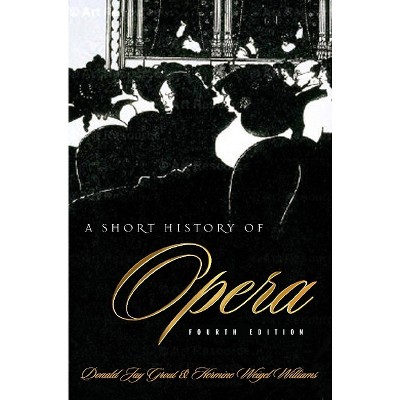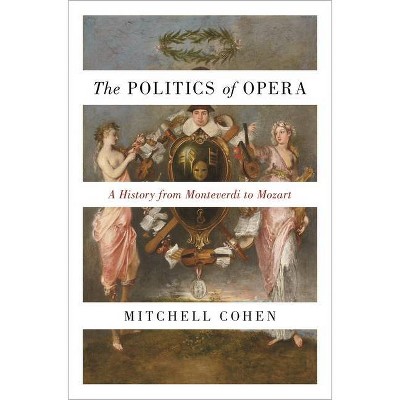Sponsored

Screening the Operatic Stage - (Opera Lab: Explorations in History, Technology, and Performa) by Christopher Morris
$112.50
In Stock
Eligible for registries and wish lists
Sponsored
About this item
Highlights
- An ambitious study of the ways opera has sought to ensure its popularity by keeping pace with changes in media technology.
- About the Author: Christopher Morris is professor of music at the National University of Ireland Maynooth.
- 280 Pages
- Music, Genres & Styles
- Series Name: Opera Lab: Explorations in History, Technology, and Performa
Description
About the Book
"From the early days of radio broadcast to today's recorded simulcasts and live online productions, opera houses have embraced technology as a way to reach new audiences. But how do these new forms of remediated opera extend, amplify, or undermine production values, and what does the audience gain or lose in the process? In Screening the Operatic Stage, Christopher Morris critically examines the cultural implications of opera's engagement with screen media. Foregrounding a playful exchange and self-awareness between stage and screen, Screening the Operatic Stage analyzes how opera sees itself on video. Morris uses the conceptual tools of media theory to understand the historical and contemporary screen cultures that have transmitted the opera house into living rooms, onto desktops and portable devices, and across networks of movie theaters. These screen cultures reveal how inherently "technological" opera is as a medium, begging the question of whether it can be understood independently of technology. Ultimately, Screening the Operatic Stage shows how the technologies of televisual representation employed in opera reinforce its audience's expectations for the genre"--Book Synopsis
An ambitious study of the ways opera has sought to ensure its popularity by keeping pace with changes in media technology. From the early days of television broadcasts to today's live streams, opera houses have embraced technology as a way to reach new audiences. But how do these new forms of remediated opera extend, amplify, or undermine production values, and what does the audience gain or lose in the process? In Screening the Operatic Stage, Christopher Morris critically examines the cultural implications of opera's engagement with screen media. Foregrounding the potential for a playful exchange and self-awareness between stage and screen, Morris uses the conceptual tools of media theory to understand the historical and contemporary screen cultures that have transmitted the opera house into living rooms, onto desktops and portable devices, and across networks of movie theaters. If these screen cultures reveal how inherently "technological" opera is as a medium, they also highlight a deep suspicion among opera producers and audiences toward the intervention of media technology. Ultimately, Screening the Operatic Stage shows how the conventions of televisual representation employed in opera have masked the mediating effects of technology in the name of fidelity to live performance.Review Quotes
"Morris explores the intersection of operatic stage and screen, focusing on how this relationship influences both production design and audience perception. . . The concepts of media theory allow Morris to explore how technology impacts how audiences and producers 'see' video productions and how that technology impacts the 'fidelity' of live performances. The use of HD, CCTV, panning/zooming, and backstage chats changes opera's 'public' (sitting in the venue itself) versus 'private' (viewing from home or in a cinema) audience experience, forcing producers to be more creative with staging. . . . Recommended for comprehensive academic opera collections."-- "Choice"
"Screening the Operatic Stage offers the most comprehensive account to date of opera's representation on screen. Morris's rich, absorbing narrative stretches across a century and a half, consulting a wide range of sources from media industry publicity to opera fan accounts to the small but growing literature on filmed and televised opera. This is an important, timely, and well-executed study. Scholars, students, and the institution of opera should take its lessons to heart."-- "Richard Will, University of Virginia"
"Opera has always absorbed all media innovations and even brought them into the world itself. Morris's book proves that this perspective provides particularly fruitful conditions for opera research, especially under the current conditions of live screening and live streaming, the use of old and new media in the opera house, and the consequences for spectatorship in the opera house or in front of a screen. Morris's book is an intellectual inspiration."-- "Clemens Risi, Friedrich-Alexander University Erlangen-Nu]rnberg"
"This strikingly original book explores a topic that is absolutely central to our idea and experience of opera. But Morris's brilliant observations have much to say about all kinds of theater and performance in the context of our hyperdigital world. Screening the Operatic Stage is a must-read for anybody interested in the performing arts today."-- "Emanuele Senici, University of Rome La Sapienza"
About the Author
Christopher Morris is professor of music at the National University of Ireland Maynooth. He is the author of Modernism and the Cult of Mountains: Music, Opera, Cinema and Reading Opera Between the Lines: Orchestral Interludes and Cultural Meaning from Wagner to Berg. He is co-executive editor of Opera Quarterly.Dimensions (Overall): 9.0 Inches (H) x 6.0 Inches (W) x .75 Inches (D)
Weight: 1.25 Pounds
Suggested Age: 22 Years and Up
Number of Pages: 280
Genre: Music
Sub-Genre: Genres & Styles
Series Title: Opera Lab: Explorations in History, Technology, and Performa
Publisher: University of Chicago Press
Theme: Opera
Format: Hardcover
Author: Christopher Morris
Language: English
Street Date: March 29, 2024
TCIN: 1006100711
UPC: 9780226831275
Item Number (DPCI): 247-50-0734
Origin: Made in the USA or Imported
If the item details aren’t accurate or complete, we want to know about it.
Shipping details
Estimated ship dimensions: 0.75 inches length x 6 inches width x 9 inches height
Estimated ship weight: 1.25 pounds
We regret that this item cannot be shipped to PO Boxes.
This item cannot be shipped to the following locations: American Samoa (see also separate entry under AS), Guam (see also separate entry under GU), Northern Mariana Islands, Puerto Rico (see also separate entry under PR), United States Minor Outlying Islands, Virgin Islands, U.S., APO/FPO
Return details
This item can be returned to any Target store or Target.com.
This item must be returned within 90 days of the date it was purchased in store, shipped, delivered by a Shipt shopper, or made ready for pickup.
See the return policy for complete information.
Trending Music & Performing Arts
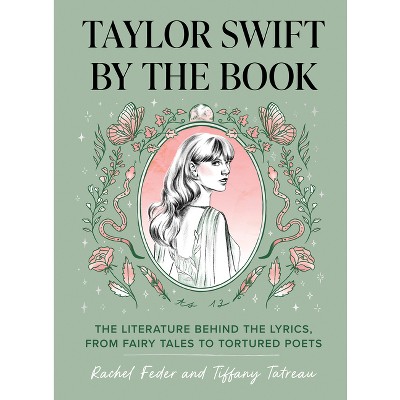
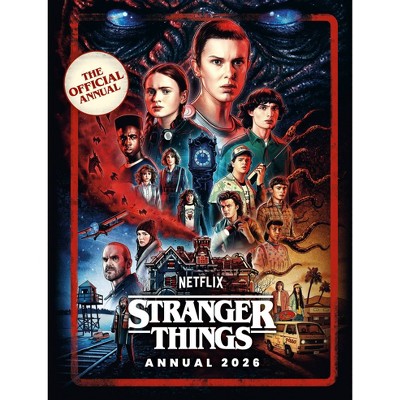
$15.19
was $18.99 New lower price
5 out of 5 stars with 1 ratings
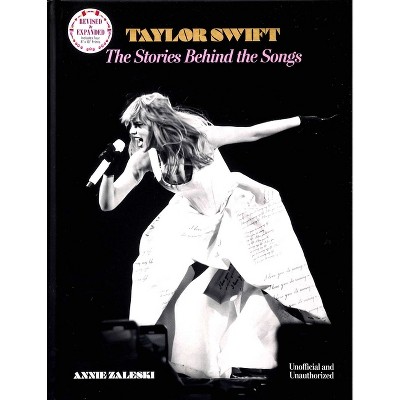


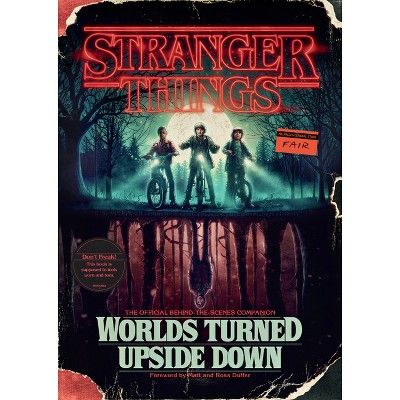

![Aspects of the Latin Conjugation - (Interface Explorations [Ie]) by David Embick & Morris Halle (Hardcover)](https://target.scene7.com/is/image/Target/GUEST_64e273d9-f928-40b1-9921-62eaa99b4c5a)

